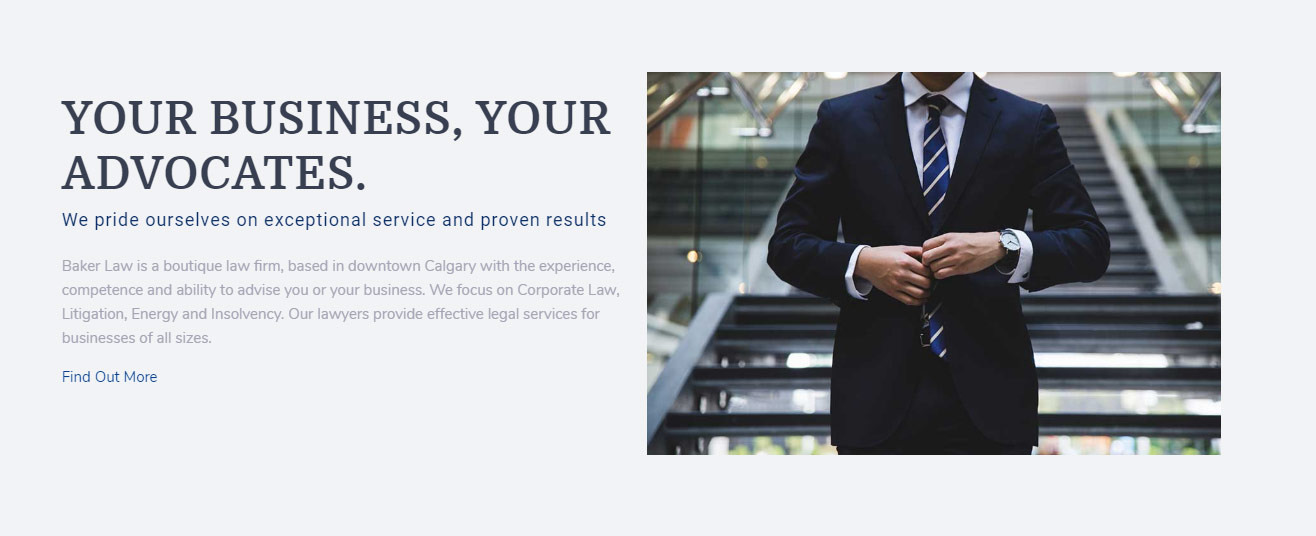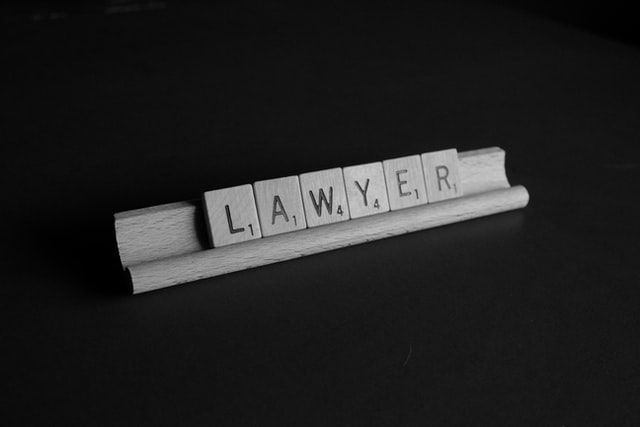
Baker Law Firm Launches New Website
July 30, 2019
What Does It Mean to be Insolvent?
January 4, 2021
We’ve helped numerous businesses get their start, but one of the most interesting businesses we assisted was Foxy Ink Tattoo Studio in Calgary. If you’re considering opening tattoo studio you are likely already familiar with art styles, inks, machines, and a bunch of technology. You may not be familiar with employment laws, personal service regulation, contracts or incorporation. We’ve created a little guide for all the legal concepts you’ll need to consider and familiarize yourself with as you plan to open your tattoo shop.
Should you incorporate your tattoo studio?
One of the first items to consider is how you want to structure your business. Will it just be yourself as an artist and sole-proprietor, or are you considering expanding with a staff? Incorporating a company to run your tattoo studio is something to consider because a corporation is separate and distinct from yourself personally. In practical terms that means you will not be personally responsible for your company’s debts. There are exceptions, but a corporation can help limit your financial exposure in case the business fails. Incorporating is also a good idea if you plan to have a business partner and are each contributing money to your new tattoo shop.
Registering a unique trade name
What are you going to call your studio? There are legal rules for this too. If you incorporate you need to name or number your company, and that name must include a descriptor such as Ltd., Inc. or Corp. These descriptors signify to the public that they are dealing with a limited liability company and not an individual with unlimited personal liability.
You may not like the idea of putting Inc., or Ltd. in your name or on your marketing so that’s where a trade name comes in. We can help you register the perfect name and attach it to your new corporation so you can do business using that name, including cashing cheques made out to that trade name.
How will you secure your studio’s location?
Location is everything in marketing. From a lawyer’s perspective, one of the biggest initial considerations will be the lease for your shop. Unless you are planning to build a studio and work from home, you are likely going to need to use someone else’s space. Generally, the main way to secure a spot in someone else’s building is to enter into a lease. However, a commercial lease for your tattoo shop will be unlike any leases you may have signed for a rented house or apartment.
Commercial leases are governed by contract law. That means whatever is written in the lease is legally enforceable between the parties. There is a lot to know about a commercial lease and before you sign one you should definitely get help from a lawyer and from a commercial real estate agent.
The landlord wants a personal guarantee
So, let’s assume you’ve found the perfect spot for your tattoo studio. You’ve also incorporated a brand new company and it doesn’t have a financial track record. It is likely that you will be asked to provide a personal guarantee for some or all of the costs associated with your commercial lease. Personal guarantees are tricky. If properly executed, they bind the signatory to personally pay the debts of another. Usually, guarantees are only called on when a business fails, so they increase the risk of making the loss of your business into a much larger personal loss. What does it mean to “properly execute” a personal guarantee? In Alberta, a personal guarantee is not binding unless the procedures under the Guarantees Acknowledgement Act are complied with. If you’re being asked to sign a guarantee by a bank or a big landlord chances are they will have their lawyer ensure your guarantee is binding.
Negligence and mistakes can be expensive
Your work is very up close and personal. Your clients may have unknown medical issues or conditions that could cause problems such as extensive scarring, infection, allergic reactions or more serious issues. You might think your client knows what they are getting into and has accepted all the risks, but unless expressly set out in a properly drafted waiver your tattoo studio could be liable for damages your clients suffer arising from your tattoos. You are going to want to ensure you’ve considered all the possible risks and had a lawyer help craft a specialized waiver that each of your clients sign.
What to consider when hiring employees, independent contractors, or guest artists?
If you plan to hire others to do tattoos in your shop you need to consider the type of legal relationship you will be forming when they work in the shop. Are they going to be full-time employees? Will they work exclusively for your shop? Will they be paid hourly or on a percentage of revenue? Do they need to collect and remit GST? Who supplies the tools and consumables? What happens if you need to fire them?
Hiring employees or contractors is a common area where new businesses can make mistakes. The law is fairly straightforward when it comes to how people work for others and what rights and entitlements each party has to the other. A lawyer will want to know how you intend to answer the above questions and can guide you into choosing the right hiring model for your new business. If problems arise with one of your workers a lawyer can help again when it’s time to let someone go.
What laws apply to a tattoo studio?
A tattoo shop is a personal service business. Generally, it falls into a similar category as barbershops, massage therapists and other such services. That said there are some industry-specific regulatory considerations. Alberta has rules and guidelines for all personal service providers and the health guidelines for tattoo studios were updated in December of 2019. Besides needing to following the Personal Services Standards issued by Alberta Health, you’ll also need to be aware of local bylaws that set out where, when and how you can operate.
How old do you need to be to get a tattoo?
This question gets asked very frequently and the answer varies a bit on the person. The answer also depends on why you’re asking. There is no legal minimum age for getting a tattoo. However, there is a lot to consider for a tattoo shop owner. A minor cannot legally enter a contract so a waiver signed by a 16-year-old will not be binding and will not protect you if their parents sue your studio. All waivers for young persons should be signed by their parent or legal guardian.
There are other considerations for tattooing minors under the age of 16. Body modifications are permanent and not all minors have the same capacity for decision making. Technically, tattooing is a form of battery, one that can be consented to like plastic surgery. The courts will consider each individual young persons ability to comprehend and consent to tattoo in the event of a lawsuit. While there are no laws expressly preventing you from tattooing a 13-year-old, there are many reasons to be cautious about doing so.
If you have questions about your new business or know someone thinking about starting a tattoo shop or other business send them this article.




